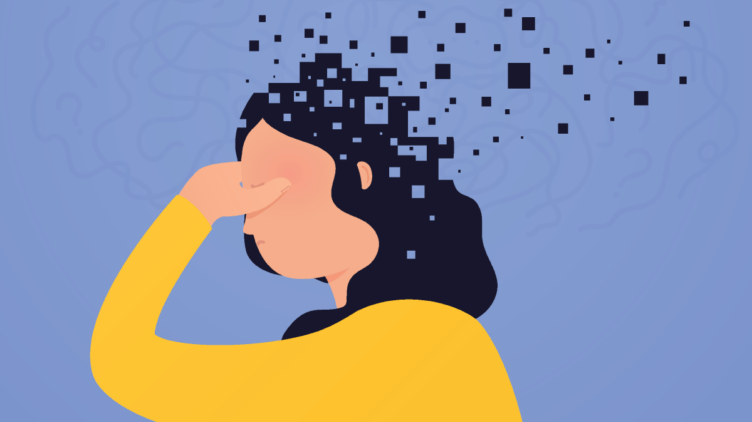Selective Amnesia and Scam Victim Psychological Trauma 2023
Author:
• Vianey Gonzalez – Licensed Psychologist Specialty in Crime Victim Trauma Therapy, Neuropsychologist, Certified Deception Professional, Psychology Advisory Panel & Director of the Society of Citizens Against Relationship Scams Inc.
• Tim McGuinness, Ph.D. – Anthropologist, Scientist, Director of the Society of Citizens Against Relationship Scams Inc.
Selective Amnesia Can Be Caused By Emotional or Psychological Trauma!
Selective amnesia is a type of memory loss where specific events or experiences are forgotten while others are retained. This type of amnesia is often a coping mechanism to protect the individual from the overwhelming emotional distress associated with the traumatic event that can affect scam victims.
How Many Crime or Scam Victims Experience Selective Amnesia
The exact percentage of people who experience emotional or psychological trauma and subsequently develop selective amnesia is challenging due to the complexities of trauma and memory. However, studies suggest that a significant portion of individuals who experience trauma may exhibit some form of memory loss, with estimates ranging from 10% to 25%.
Victims of crime and scams are particularly vulnerable to developing selective amnesia as these experiences often involve intense emotional distress and a violation of trust. Studies have shown that around 20% of crime victims experience some form of memory loss, with a higher prevalence among victims of violent crimes such as sexual assault. Similarly, scam victims may experience memory loss related to specific details of the scam or their interactions with the scammer, as well as other life events happening during the same period, though it does not have to be isolated to just that time frame.
The development of selective amnesia following trauma is a complex phenomenon influenced by various factors, including:
- The severity of the trauma: More severe traumas are generally associated with a higher likelihood of memory loss.
- Individual coping mechanisms: Individuals with better coping skills may be less likely to develop memory loss.
- Genetic predisposition: Some individuals may have a genetic predisposition to developing memory loss after trauma.
- Presence of support systems: Strong social support systems can help individuals cope with trauma and reduce the risk of memory loss.
- Time elapsed since the trauma: Memory loss is often more pronounced in the immediate aftermath of trauma but may fade or resolve over time.
The estimate that 10% to 25% of people who experience emotional or psychological trauma experience some selective amnesia comes from a variety of studies on the topic. Here are a few examples:
- A 2010 study published in the journal “Psychological Medicine” found that 12% of participants with post-traumatic stress disorder (PTSD) reported experiencing selective amnesia related to their traumatic experience.
- A 2012 study published in the journal “Depression and Anxiety” found that 21% of participants with a history of childhood trauma reported experiencing selective amnesia related to the traumatic event.
- A 2015 review article published in the journal “Current Psychiatry Reports” found that the prevalence of selective amnesia in individuals with PTSD ranges from 10% to 25%.
- A 2017 study published in the journal “Psychological Trauma” found that 17% of participants who had experienced a violent crime reported experiencing selective amnesia related to the crime.
- A 2019 study published in the journal “Frontiers in Psychology” found that 23% of participants who had been victims of fraud reported experiencing selective amnesia related to the scam.
Overall, the research suggests that selective amnesia is a common symptom of emotional or psychological trauma and that it is particularly common in individuals who have experienced severe or violent trauma.
Coping Mechanisms
The brain has several mechanisms for protecting itself from emotional overload, and one of these is selective amnesia. By selectively forgetting the traumatic event, the brain can help to reduce the intensity of the emotional memories and allow the individual to cope with the trauma.
In some cases, selective amnesia can also affect memories that are unrelated to the traumatic experience. This is because the trauma can disrupt the brain’s normal memory formation processes, making it difficult to form new memories or retrieve old ones.
The extent to which trauma affects memory can vary depending on the individual and the severity of the trauma. Some people may only forget specific details of the traumatic event, while others may experience more widespread memory loss.
If you are experiencing memory problems after a traumatic experience, it is important to seek professional help. A therapist can help you to understand your memory loss and develop coping mechanisms to deal with the trauma and its effects.
Selective Amnesia Factors
Here are some of the factors that can affect whether or not a person develops selective amnesia after a traumatic experience:
- The severity of the trauma: More severe traumas are more likely to lead to memory loss.
- The individual’s coping mechanisms: People with healthy coping mechanisms are less likely to develop memory loss.
- The individual’s genetic predisposition: Some people may be genetically predisposed to developing memory loss after trauma.
- The individual’s support system: People with strong support systems are less likely to develop memory loss.
Restoring Misplaced Memories
Restoring memories lost due to selective amnesia can be a challenging process, but there are several techniques and exercises that can help. These methods aim to create a safe and supportive environment for the individual to gradually confront and process the traumatic memories that are causing the amnesia.
The irony of selective amnesia is that a person might not even know that they lost part of their memories because of the trauma until they try to recall something specific and it is just not there.
How Can You Know?
There is a fairly simple test that anyone can do for themselves to see if they lost memories associated with or around the same time as a trauma.
Write out a Timeline of events surrounding (before, during, and after) the trauma. In other words, write down important milestones not just of the traumatic event by itself. Take the period around the end of the scam or its discovery as a center point. Try to list a month before and a month after to see what you remember. Ask family members or friends about that period to see what they remember and then see if you remember the same things. If you find significant gaps, extend the timeline to help you better understand the range of time affected.
You may be very surprised to find there are things you do not remember.
If you find there are things you do not remember DO NOT BE ALARMED! It is normal.
Sometimes you can recover those memories, sometimes not, but it does not mean you have brain damage. It just means you were traumatized.
However, if you or someone you know is experiencing selective amnesia, seeking professional support from a therapist or mental health professional specializing in trauma recovery is essential. They can provide a personalized assessment, recommend appropriate treatment options, and offer guidance and support throughout the recovery process.
Professional Techniques & Exercises
Here are some potential techniques and exercises that can aid in memory recovery from selective amnesia:
Cognitive Behavioral Therapy (CBT):
- CBT can help individuals identify and modify distorted thinking patterns and negative beliefs related to the traumatic event, potentially reducing the emotional barriers that prevent memory retrieval.
Eye Movement Desensitization and Reprocessing (EMDR):
- EMDR involves guiding the individual through specific eye movements while they recall traumatic events. This technique is thought to help desensitize the individual to the emotional distress associated with the trauma, potentially facilitating memory recovery.
Narrative Therapy:
- This approach focuses on helping the individual create a coherent and meaningful narrative of their life experiences, including the traumatic event. By integrating the traumatic memories into their overall life story, individuals may gain a better understanding of the event and its impact, potentially aiding in memory retrieval.
Memory Cues and Context Restoration:
- Providing cues or reminders related to the traumatic event, such as familiar objects, locations, or sounds, can sometimes trigger the retrieval of forgotten memories.
Hypnosis:
- Hypnosis can be used to induce a state of relaxation and enhanced suggestibility, potentially making it easier for individuals to access and process repressed memories.
Journaling and Creative Expression:
- Encouraging the individual to express their thoughts and emotions about the traumatic event through journaling, writing, drawing, or other creative forms of expression can help them process the trauma and potentially unlock forgotten memories.
Meditative Techniques:
- Mindfulness and meditation practices can help individuals cultivate a sense of calmness and reduce stress, potentially creating a more conducive environment for memory retrieval.
Sleep and Relaxation:
- Adequate sleep and relaxation are crucial for memory consolidation and overall brain health. Ensuring proper sleep patterns and relaxation techniques can support the recovery process.
It is important to note that memory recovery from selective amnesia is a gradual and individualized process. Each person’s response to treatment and the likelihood of memory retrieval vary depending on the severity of the trauma, the individual’s coping mechanisms, and the effectiveness of the therapeutic approach.
Fear and Anxiety
The discovery of selective amnesia can be a profoundly unsettling and anxiety-provoking experience. The sudden realization of gaps in one’s memory, the inability to recall significant personal events, and the uncertainty about the extent of the memory loss can all lead to intense emotional distress.
Common Fears and Anxieties Associated with Selective Amnesia:
- Loss of Identity: The inability to remember crucial details about one’s past can lead to a sense of identity loss and confusion about who they are as a person.
- Fear of the Unknown: The uncertainty about what memories have been lost and the potential for hidden traumas can fuel anxiety and fear.
- Guilt and Shame: Individuals may feel guilt or shame for their inability to remember certain events, especially if those events involve negative experiences or poor choices.
- Loss of Control: The feeling of losing control over one’s own memories can be deeply distressing and can lead to anxiety about the future.
- Fear of Recurrence: The fear of experiencing additional memory loss or the recurrence of traumatic events can exacerbate anxiety and hinder recovery.
Strategies for Minimizing Fear and Anxiety:
- Seek Professional Help: Consulting a therapist or mental health professional specializing in trauma recovery can provide crucial support and guidance in managing anxiety and developing coping mechanisms.
- Educate Yourself: Understanding the nature of selective amnesia and its connection to trauma can help individuals normalize their experiences and reduce feelings of isolation.
- Practice Mindfulness Techniques: Mindfulness practices like meditation and deep breathing can help manage anxiety, promote relaxation, and improve overall well-being.
- Engage in Creative Expression: Journaling, writing, drawing, or other creative forms of expression can help individuals process their emotions and gain a sense of control over their narrative. Playing with LEGO can be particularly effective in helping to restore calmness.
- Maintain a Healthy Lifestyle: Ensure adequate sleep, regular exercise, and a balanced diet to promote overall mental and physical health, which can contribute to anxiety reduction.
- Build a Strong Support Network: Surround yourself with supportive friends, family members, or support groups to provide a sense of connection and understanding.
- Be Patient and Kind to Yourself: Recovery from selective amnesia and the associated anxiety takes time and patience. Be compassionate with yourself and celebrate small victories along the way.
Remember, selective amnesia is a complex condition with no quick fixes. With professional care, support, self-care, and a supportive network, individuals can learn to manage their anxiety and navigate the challenges of memory loss.
More About Testing For Selective Amnesia
Assessing selective amnesia can be a complex process involving various diagnostic tools and techniques. While there is no single definitive test for selective amnesia, a combination of methods can help clinicians evaluate the presence and extent of memory loss.
Clinical Interview:
- A comprehensive clinical interview is crucial to gather detailed information about the individual’s memory loss, including the onset, duration, and nature of the amnesia. This interview also allows clinicians to assess the individual’s overall mental health, identify potential risk factors, and rule out other possible causes of memory loss.
Neuropsychological Testing:
- Neuropsychological assessments involve standardized tests that evaluate various cognitive functions, including memory, attention, and executive functioning. These tests can provide objective data on the individual’s memory performance and help identify any specific memory deficits.
Memory Retrieval Tasks:
- Clinicians may employ memory retrieval tasks to assess the individual’s ability to recall specific events or information. These tasks can vary in complexity and may involve free recall, cued recall, or recognition tests.
Self-Reported Memory Measures:
- Self-reported questionnaires or interviews can provide valuable insights into the individual’s perception of their own memory problems. These measures can help identify areas of subjective memory difficulties that may not be fully captured by objective tests.
Brain Imaging Studies:
- In some cases, brain imaging techniques such as MRI or CT scans may be used to assess for any structural abnormalities in the brain that could contribute to memory loss. However, brain imaging alone cannot definitively diagnose selective amnesia.
Differential Diagnosis:
- Clinicians must carefully consider and rule out other potential causes of memory loss before concluding a diagnosis of selective amnesia.
These include:
- Organic causes: Neurological disorders, head injuries, and substance abuse can all lead to memory impairments. Medication interactions can also cause adverse reactions that can affect memory as well.
- Functional causes: Post-traumatic stress disorder (PTSD), depression, and anxiety can also affect memory function. This would be more in line for scam victims. The trauma experienced by most scam victims can be severe and cause any number of traumatic side effects.
- Normal aging: Memory decline is a common part of aging, and it is important to differentiate between age-related memory changes and selective amnesia.
Diagnosing selective amnesia requires a comprehensive evaluation that considers the individual’s clinical history, neuropsychological testing results, self-reported memory difficulties, potential brain abnormalities, and differential diagnosis. By carefully evaluating these factors, clinicians can provide an accurate diagnosis and recommend appropriate treatment and support.
Summary
If you are concerned that you may be experiencing selective amnesia, it is important to talk to a doctor or mental health professional. They can help you to determine the cause of your memory problems and recommend the best course of treatment.
To find mental health and trauma counseling or therapy resources please visit counseling.AgainstScams.org
Remember, trauma-related selective amnesia does not mean you are brain-damaged. It just means you were traumatized, though it is good to make sure by seeing a medical doctor and a therapist just to be sure.
More:
- Relationship Scams And Their Impact On Memory (scamsnow.com)
- Lego Therapy For Scam Victims (romancescamsnow.com)
- The Tao – The Philosophy of the Path to Recovery (scamsnow.com)
- PTSD And Complex PTSD – The Difference Between Them – 2023 (scamsnow.com)
- Scam Victim Resiliency – Why It Is So Much Worse After The Scam (scamsnow.com)
- The Psychology of Scams (romancescamsnow.com)
SCARS Resources:
- For New Victims of Relationship Scams newvictim.AgainstScams.org
- Subscribe to SCARS Newsletter newsletter.againstscams.org
- Sign up for SCARS professional support & recovery groups, visit support.AgainstScams.org
- Find competent trauma counselors or therapists, visit counseling.AgainstScams.org
- Become a SCARS Member and get free counseling benefits, visit membership.AgainstScams.org
- Report each and every crime, learn how to at reporting.AgainstScams.org
- Learn more about Scams & Scammers at RomanceScamsNOW.com and ScamsNOW.com
- Global Cyber Alliance ACT Cybersecurity Tool Website: Actionable Cybersecurity Tools (ACT) (globalcyberalliance.org)
- Self-Help Books for Scam Victims are at shop.AgainstScams.org
- Donate to SCARS and help us help others at donate.AgainstScams.org
- Worldwide Crisis Hotlines: International Suicide Hotlines – OpenCounseling : OpenCounseling
- Campaign To End Scam Victim Blaming – 2024 (scamsnow.com)
-/ 30 /-
What do you think about this?
Please share your thoughts in a comment below!
More ScamsNOW.com Articles
-/ 30 /-
What do you think about this?
Please share your thoughts in a comment above!
SCARS LINKS: AgainstScams.org RomanceScamsNOW.com ContraEstafas.org ScammerPhotos.com Anyscam.com ScamsNOW.com
reporting.AgainstScams.org support.AgainstScams.org membership.AgainstScams.org donate.AgainstScams.org shop.AgainstScams.org
youtube.AgainstScams.org linkedin.AgainstScams.org facebook.AgainstScams.org
ARTICLE RATING
TABLE OF CONTENTS
- Selective Amnesia Can Be Caused By Emotional or Psychological Trauma!
- How Many Crime or Scam Victims Experience Selective Amnesia
- Coping Mechanisms
- Selective Amnesia Factors
- Restoring Misplaced Memories
- How Can You Know?
- Professional Techniques & Exercises
- Fear and Anxiety
- More About Testing For Selective Amnesia
- Summary
- More:
- SCARS Resources:
- Important Information for New Scam Victims
- Statement About Victim Blaming
- SCARS INSTITUTE RESOURCES:
- Psychology Disclaimer:
- More ScamsNOW.com Articles
- A Question of Trust
- SCARS Institute™ ScamsNOW Magazine
Society of Citizens Against Relationship Scams Inc. [SCARS]
META
CATEGORIES
MOST POPULAR COMMENTED ARTICLES
POPULAR ARTICLES
U.S. & Canada Suicide Lifeline 988
![NavyLogo@4x-81[1]](https://scamsnow.com/wp-content/uploads/2025/04/NavyLogo@4x-811.png)
WHAT PEOPLE ARE TALKING ABOUT
LATEST SITE COMMENTS
See Comments for this Article at the Bottom of the Page
on Vulnerability to Scams Caused by Past Relationships is Like a River Running through Your Life Cutting Channels – 2025: “My big take away from this article is that there are many layers to my vulnerability. Yes, losing my Mom…” May 8, 11:43
on Hate for Scammers and Criminals Feels So Good But is So Bad for Scam Victims – 2025: “As stated here it feels like it should be justified – to hate them. I never did feel that way,…” May 6, 17:32
on Scam Victims Suppressing Trauma Or Avoiding Recovery And Healing 2024: “This is a great article that will, hopefully, help when I am avoiding facing my emotions/triggers. Recognizing the signs and…” May 6, 16:47
on SCARS 5 Coping Techniques For Traumatized Scam Victims – 2023: “One of the best ways of coping for me has been to reconnect with my friends. I self-isolated for months…” May 6, 16:07
on Trauma Recollection/Traumatic Flashbacks And Scam Victim PTSD – Recovery Psychology – 2023: “I don’t feel like my trauma can be described as PTSD. The affects after the scam ended were severe anxiety,…” May 6, 15:55
on Selective Amnesia and Scam Victim Psychological Trauma 2023: “This was a very interesting article to me. I have not experienced selective amnesia in relation to the scam. However,…” May 6, 15:39
on Psychological Triggers/Emotional Triggers – What They Are And How They Work – 2023/2024: “Not long after my scam ended, I needed to go to the grocery store. It never crossed my mind that…” May 6, 14:48
on Learning And The Challenges That A Scam Victim Faces From Trauma And Related Cognitive Effects – 2024: “My cognitive impairment was bad right after my scam. However, I have now noticed that it was especially bad during…” May 6, 14:23
on Hate for Scammers and Criminals Feels So Good But is So Bad for Scam Victims – 2025: “This is all true and valid. I had to forgive myself first for trusting my abuser because he hurt my…” May 6, 10:08
on Nirvana and the Path to Letting Go of Suffering – 2025: “En mi experiencia podría describir el nirvana en mi recuperación como ese estado de paz profunda y liberación emocional que…” May 5, 18:58
on The Prodigal Son or Daughter – Returning ‘Home’ After the Scam – 2025: “It’s true that the judgment of others does not define my path but if after “coming home” those closest to…” May 5, 13:21
on Beginning Again and Scam Victim Recovery -2025: “Taking action is the first step to recovery and I am doing that and becoming a newer stronger version of…” May 5, 09:53
on Beginning Again and Scam Victim Recovery -2025: “In order not to let this deception define me, since its discovery I have been ACTING.” May 5, 07:22
on The Butterfly Effect And Scam Victims – 2024: “Very good and interesting analogy to the Butterfly Effect and how it pertains to scams. In my crime I can…” May 4, 14:51
on Faith And Why It Matters In Scam Victim Recovery – 2024: “This is a good article giving examples of the difference between faith in oneself and one’s core values – to…” May 4, 13:37
on Reclaiming Your Worth: A Scam Survivor’s Guide to Navigating Your Worthiness After a Scam – 2023: “As an individual I process my emotions slowly whether it is shock, trauma, anger, disbelief. In the cycle of recovery…” May 4, 12:54
on The Stain that Never Goes Away After a Romance Scam for Scam Victims – 2025: “Thank you for sharing this important step on recovery” May 4, 12:09
on Metanoia – The Transformation for Traumatized Scam Victims – 2025: “Excelente articulo!!!… Después de superar la estafa podría describir la metanoia en mi propia experiancia como un renacimiento interior, una…” May 4, 00:24
on Philosophy of Life Planning – From Chaos to Order and the Scam Victim Recovery Path Forward – 2025: “Seeking justice is, unfortunately, not justice. Anger and revenge is not justice either. Recovery is justice. The only justice for…” May 3, 21:16
Important Information for New Scam Victims
Please visit www.ScamVictimsSupport.org – a SCARS Website for New Scam Victims & Sextortion Victims
SCARS Institute now offers a free recovery program at www.SCARSeducation.org
Please visit www.ScamPsychology.org – to more fully understand the psychological concepts involved in scams and scam victim recovery
If you are looking for local trauma counselors, please visit counseling.AgainstScams.org
If you need to speak with someone now, you can dial 988 or find phone numbers for crisis hotlines all around the world here: www.opencounseling.com/suicide-hotlines
Statement About Victim Blaming
Some of our articles discuss various aspects of victims. This is both about better understanding victims (the science of victimology) and their behaviors and psychology. This helps us to educate victims/survivors about why these crimes happened and not to blame themselves, better develop recovery programs, and help victims avoid scams in the future. At times, this may sound like blaming the victim, but it does not blame scam victims; we are simply explaining the hows and whys of the experience victims have.
These articles, about the Psychology of Scams or Victim Psychology – meaning that all humans have psychological or cognitive characteristics in common that can either be exploited or work against us – help us all to understand the unique challenges victims face before, during, and after scams, fraud, or cybercrimes. These sometimes talk about some of the vulnerabilities the scammers exploit. Victims rarely have control of them or are even aware of them, until something like a scam happens, and then they can learn how their mind works and how to overcome these mechanisms.
Articles like these help victims and others understand these processes and how to help prevent them from being exploited again or to help them recover more easily by understanding their post-scam behaviors. Learn more about the Psychology of Scams at www.ScamPsychology.org
SCARS INSTITUTE RESOURCES:
IF YOU HAVE BEEN VICTIMIZED BY A SCAM OR CYBERCRIME
♦ If you are a victim of scams, go to www.ScamVictimsSupport.org for real knowledge and help
♦ Enroll in SCARS Scam Survivor’s School now at www.SCARSeducation.org
♦ To report criminals, visit https://reporting.AgainstScams.org – we will NEVER give your data to money recovery companies like some do!
♦ Sign up for our free support & recovery help by https://support.AgainstScams.org
♦ Join our WhatsApp Chat Group at: https://chat.whatsapp.com/BPDSYlkdHBbDBg8gfTGb02
♦ Follow us on X: https://x.com/RomanceScamsNow
♦ Follow us and find our podcasts, webinars, and helpful videos on YouTube: https://www.youtube.com/@RomancescamsNowcom
♦ SCARS Institute Songs for Victim-Survivors: https://www.youtube.com/playlist…
♦ See SCARS Institute Scam Victim Self-Help Books at https://shop.AgainstScams.org
♦ Learn about the Psychology of Scams at www.ScamPsychology.org
♦ Dig deeper into the reality of scams, fraud, and cybercrime at www.ScamsNOW.com and www.RomanceScamsNOW.com
♦ Scam Survivor’s Stories: www.ScamSurvivorStories.org
♦ For Scam Victim Advocates visit www.ScamVictimsAdvocates.org
♦ See more scammer photos on www.ScammerPhotos.com
You can also find the SCARS Institute on Facebook, Instagram, X, LinkedIn, and TruthSocial
Psychology Disclaimer:
All articles about psychology and the human brain on this website are for information & education only
The information provided in this and other SCARS articles are intended for educational and self-help purposes only and should not be construed as a substitute for professional therapy or counseling.
Note about Mindfulness: Mindfulness practices have the potential to create psychological distress for some individuals. Please consult a mental health professional or experienced meditation instructor for guidance should you encounter difficulties.
While any self-help techniques outlined herein may be beneficial for scam victims seeking to recover from their experience and move towards recovery, it is important to consult with a qualified mental health professional before initiating any course of action. Each individual’s experience and needs are unique, and what works for one person may not be suitable for another.
Additionally, any approach may not be appropriate for individuals with certain pre-existing mental health conditions or trauma histories. It is advisable to seek guidance from a licensed therapist or counselor who can provide personalized support, guidance, and treatment tailored to your specific needs.
If you are experiencing significant distress or emotional difficulties related to a scam or other traumatic event, please consult your doctor or mental health provider for appropriate care and support.
Also read our SCARS Institute Statement about Professional Care for Scam Victims – click here
If you are in crisis, feeling desperate, or in despair, please call 988 or your local crisis hotline.
More ScamsNOW.com Articles
A Question of Trust
At the SCARS Institute, we invite you to do your own research on the topics we speak about and publish. Our team investigates the subject being discussed, especially when it comes to understanding the scam victims-survivors’ experience. You can do Google searches, but in many cases, you will have to wade through scientific papers and studies. However, remember that biases and perspectives matter and influence the outcome. Regardless, we encourage you to explore these topics as thoroughly as you can for your own awareness.















![scars-institute[1]](https://scamsnow.com/wp-content/uploads/2025/04/scars-institute1.png)
![niprc1.png1_-150×1501-1[1]](https://scamsnow.com/wp-content/uploads/2025/04/niprc1.png1_-150x1501-11.webp)

This was a very interesting article to me. I have not experienced selective amnesia in relation to the scam. However, I did experience it many years ago after a breakup. There were 2 months of my life completely gone from my memory. This article explained to me how it happened. I did understand, once I came out on the other side of it, that my brain was protecting me from the pain I was going through. I thought I had a nervous breakdown – simply because it was a term I’d heard before. I didn’t seek psychological help and went on with my life. I now know it was selective amnesia and wish I knew ways to help myself all those years ago. It’s nice to be able to properly label it now.
First a very informative article. I do have age related memory issues – mostly in remembering small things or things in a chronological order. That said there are some things I don’t remember of my crime. Like driving to and from stores when I was sent to get gift cards. And many of the “arguments’ I had with the criminal. I did retain copies of many of the messages before blocking the criminal and deleting Telegram. But there are days at work, or appointments that I do not remember that occurred during the scam. And unfortunately, my memories of my granddaughter’s wedding are blurred. The wedding was during a time when the criminal was “arguing” with me. It was also during the time I told my husband about my crime. Between digital and physical discussions my mind was on overload.
Unfortunately I remember everything all too well. All the details and timeline are all there in my copy of our chats I saved for reporting the crime.
Journaling has especially helped me in my recovery. very helpful article